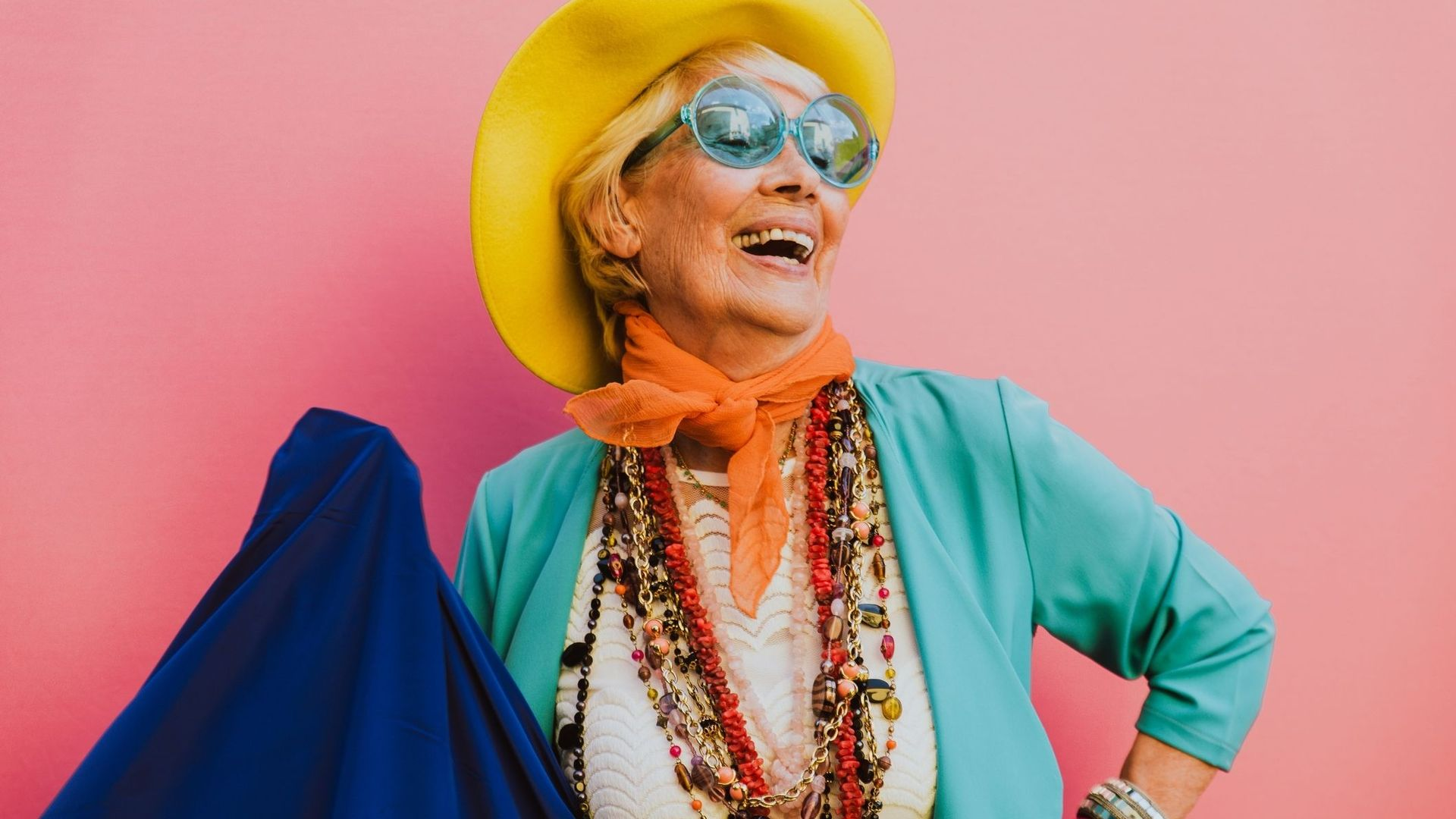Demographic
The term "seniors" refers to individuals aged 60 and above, a rapidly growing demographic. By 2030, their global population is projected to reach 1.4 billion. In many countries, seniors already represent 20% of the population, driven by longer life expectancy and the aging of the baby boomer generation.
This group offers significant market potential, with their diverse needs spanning healthcare, services, and technology. Moreover, seniors have more leisure time and often greater financial stability, leading to higher spending on travel, recreation, and lifestyle products, making them a key target for business growth.
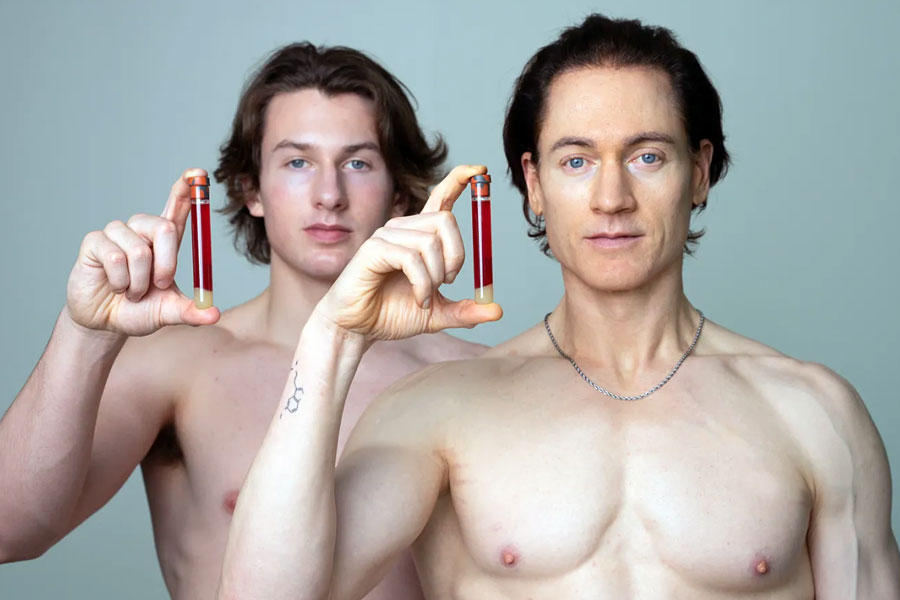
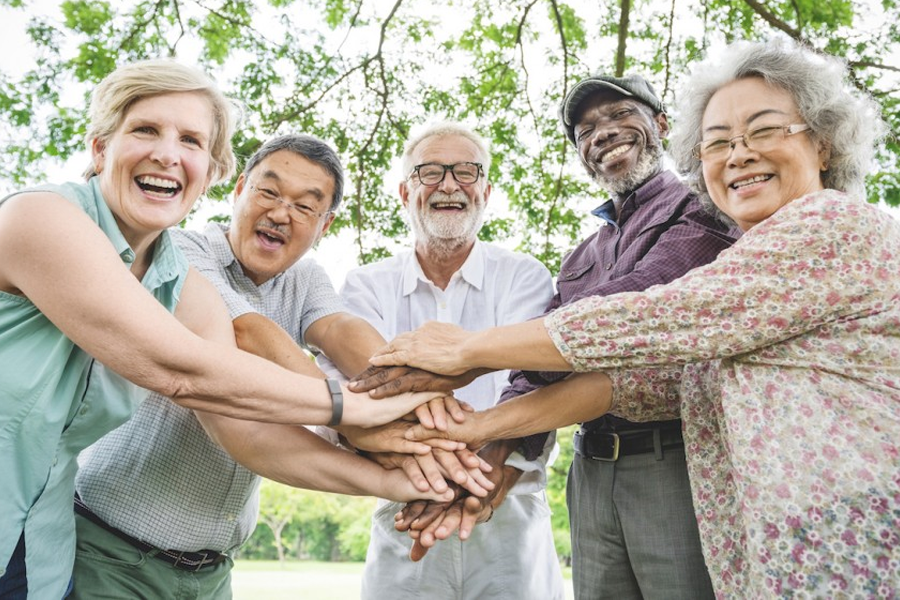
Research
A group consisting of Lucie Bailleul, Guillaume Haudrechy, Catherine Lucas-Bouillon and Hélène Petot has recently begun, since January 2024, an in-depth exploration of seniors as a potential target for our company. This initiative aims to better understand the specific needs of this growing population and to identify opportunities to adapt our offerings to effectively meet their expectations.
We conducted a global study with CCU team (Alexia Duraffourg, Fabienne Declemy, Marjorie Decherf) with 90 interviews in France, US and China, and a survey with 5200 respondents in 9 countries, in order to understand the senior population from 55 years old across the world.
How to help them age well ? Here are below the key learnings of the study.
Key learnings
The term senior is often associated with a dated and singular image, that of an old person in an armchair, reminiscing about the past. However, this fixed representation of the senior, unique and stereotypical, no longer exists.
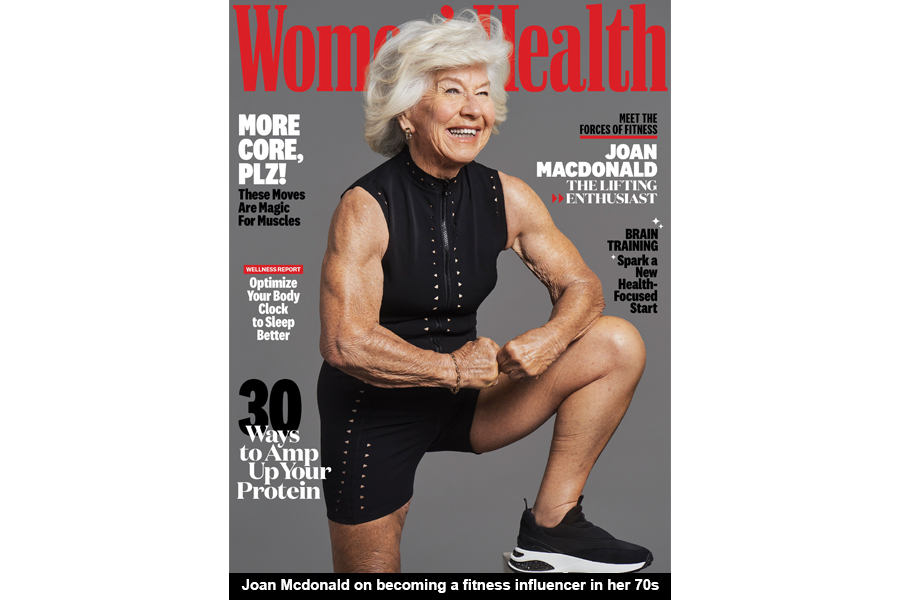
What truly characterizes seniority is a wealth of experience: the wisdom gained over the years, the generosity that comes from sharing this knowledge, and free time now reinvested in meaningful activities. With less procrastination, they learn to savor the moment, enjoying each instant with serenity.
My mentality is more open-minded in this age, I can easy to let it go when I meet troubles. My mission for this age is to cherish the moment, live every day, I think the age of 60-70 is a golden decade, I have the energy and interested to do what I want, I will cherish this time more, try to go out and see the world, afterall, the most beautiful scenery is always on the road Li, 61 yo, CH
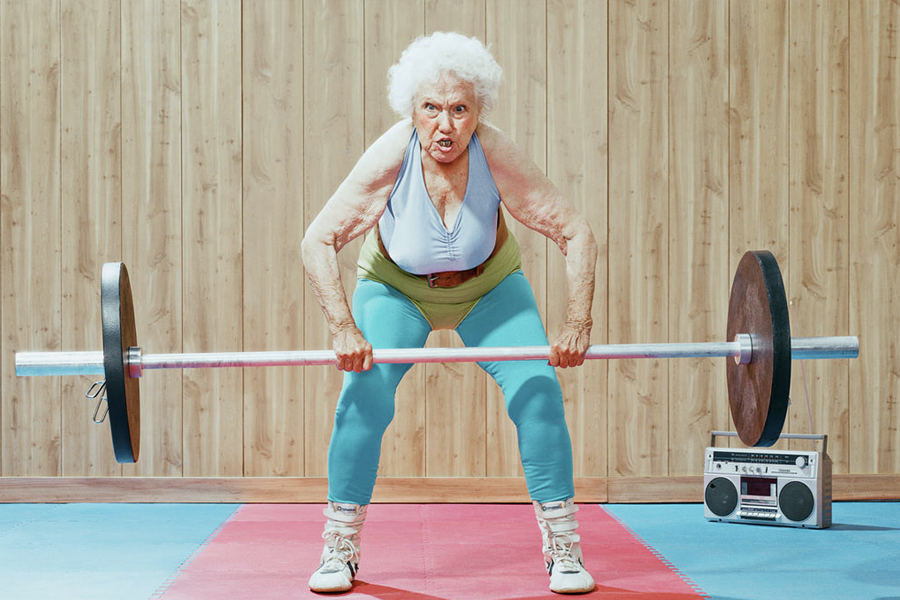

In summary, it is time to redefine our vision of seniority. Today’s seniors are not just bearers of memories but active participants in their lives, ready to embrace the future with enthusiasm and determination.
The silver revolution is a celebration of this new era, where individuals free themselves from stereotypes and forge their own paths toward a fulfilling old age.
Senior life periods
We have identified three key stages in the life of seniors, each characterized by distinct needs and behaviors. However, the way these stages are experienced is greatly influenced by access to resources, which shapes their lifestyle and choices at each phase.
5 senior personae
We have developed five senior personae based on qualitative and quantitative research, each representing distinct lifestyles, values, and access to resources. Presented in descending order of physical activity, these profiles help us better understand and address the varying needs of this key demographic.
The Performer
Proportion in senior population : 7%
Major practice: Roadcycling
Key facts:
- more men (58% men)
- they are young : 50% not yet retired
- 45% practice sport everyday
- high intensity
- main motivations: enjoy , maintain their performance, personal goals, meet people
- 1/3 take part to a club/ association
- Convinced of the benefits of sports
He is a man in his mid-60s with a lifelong passion for sports. Physical activity is central to his routine, excelling in running, cycling, tennis, and golf. A former competitor, he thrives on pushing his limits and proving he's still among the best.
Though competition is key, he enjoys meeting people and playing with buddies, valuing the social side of sports. His focus on performance is matched by his need to manage injuries, making him open to innovations that help him excel. He also seeks athletic vacations for high-level participants.
I grew up in a very competitive environment (…) I’m still competitive. It adds excitement Jim, 70 yo, US
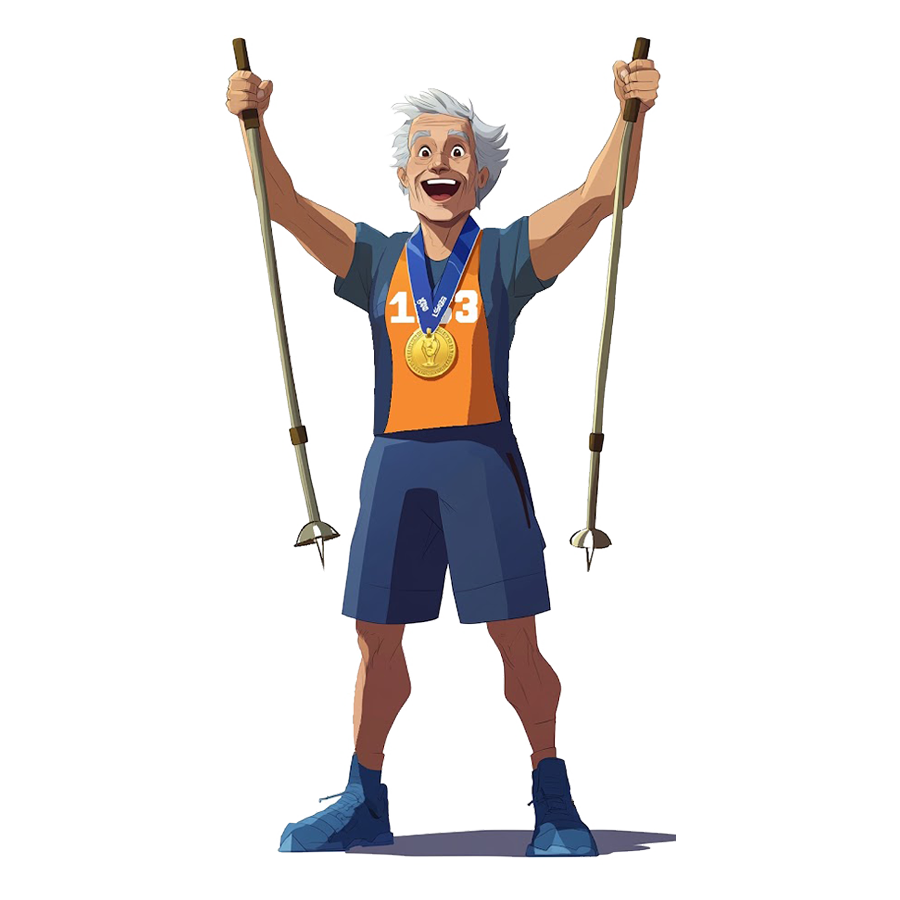
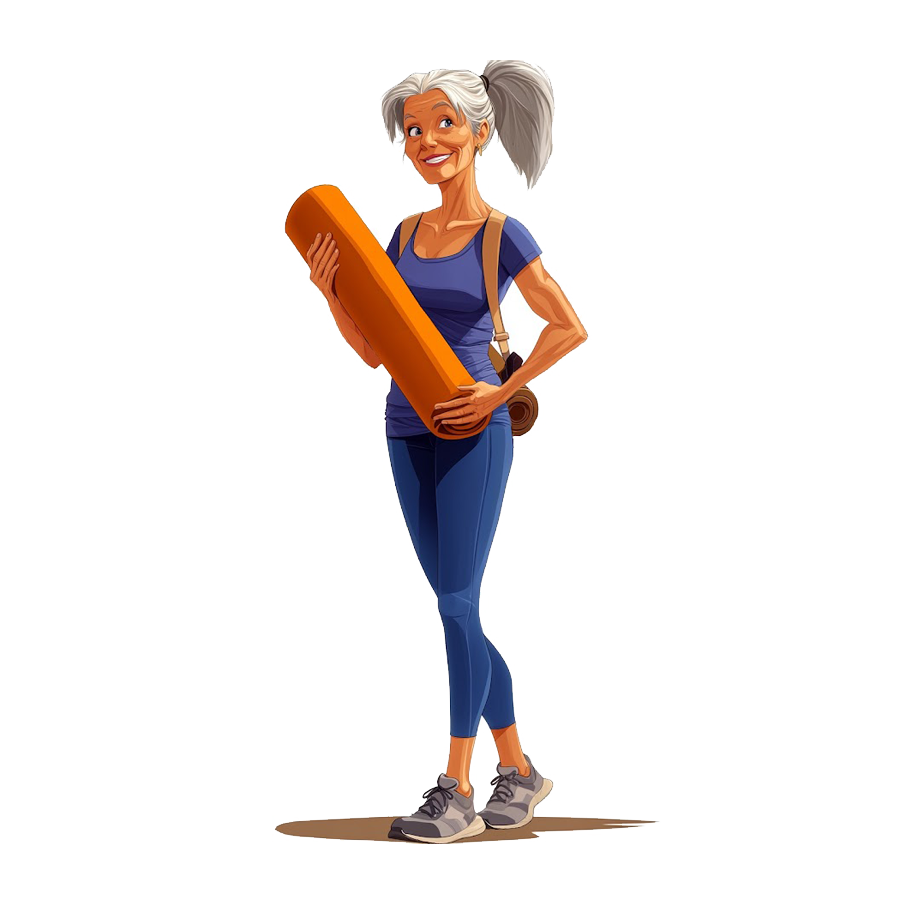
The passionate
Proportion in senior population : 22%
Major practice: hiking
Key facts:
- 67% feel in good or very good physical fitness
- 50% practice sport everyday
- moderate intensity
- Convinced of the benefits of sports
- main motivations: good health, enjoy, outdoor, stay in shape
She is a senior who enjoys sports for the simple joy and well-being it brings her. While she is well aware of the health benefits, her motivation stems from the pleasure of staying active rather than from competition. She engages in a variety of sports and uses them as a way to reconnect with herself, striving for a balance between body and mind. Her passion for physical activity drives her to share and transmit it to others, often becoming a central figure in her community. She values experiences that combine physical activity with culture, such as organized, intergenerational sports vacations, where she can continue building connections and fostering relationships.
It's natural, it's a natural need. I don't question it and it's a pleasure too Denise, 72 yo, FR
The Reasoned
Proportion in senior population : 30%
Major practice: gymnastique douce
Key facts:
- All took part in sport as adults, but only occasionally
- 89% had periods when they stopped doing sport à l'âge adulte.
- Practice 1 to 3 times a week for 40%
- Light to moderate intensity
- 30% take courses adapted to senior
- main motivations: to keep fit and healthy
This senior views sports as a necessity for maintaining his physical health and fitness. For him, exercise isn't about fun, but about staying in shape—he even considers it like medicine. He pushes himself through workouts with a no-nonsense attitude, focusing on finding the right techniques to avoid injury. His main goal is to stay physically fit, often driven by the need to manage his weight. Supporting him involves guiding him toward more efficient exercises and showing him that sports can still be enjoyable and satisfying.
The doctor suggested me to exercise regularly. I began to walk everyday, and exercising limbs with fitness equipment. Now I feel much better, my blood pressure and blood sugar are not as high as before, the spirit is much better Liu, 67 yo, CH
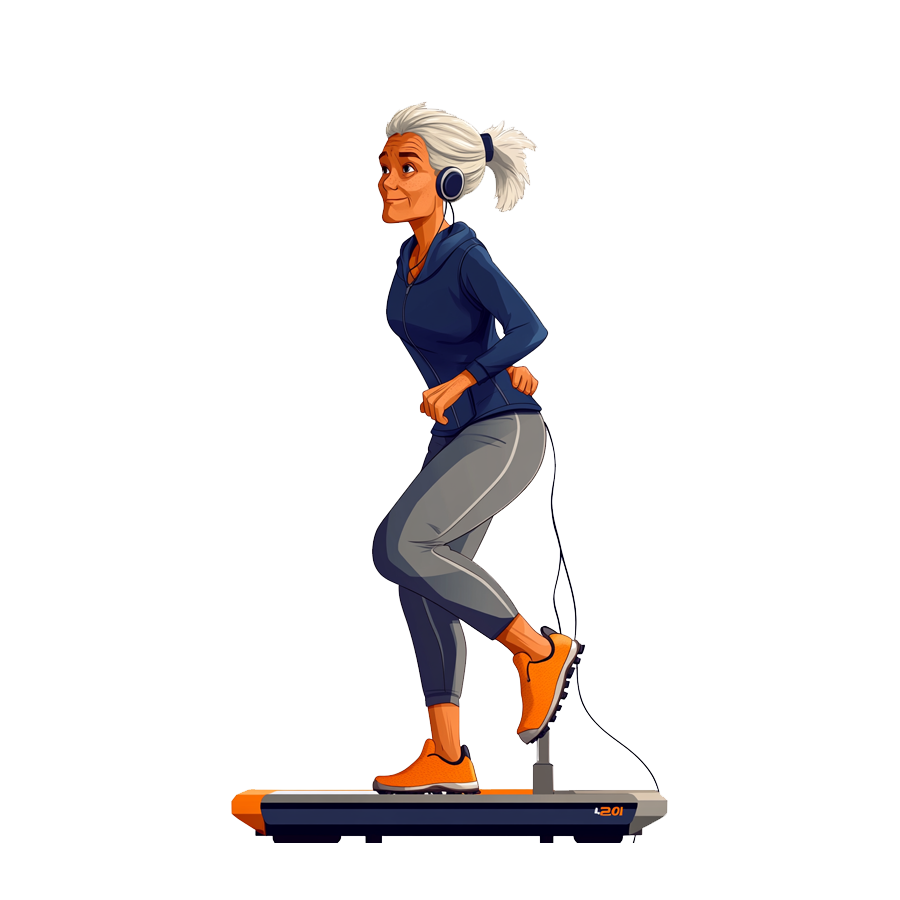
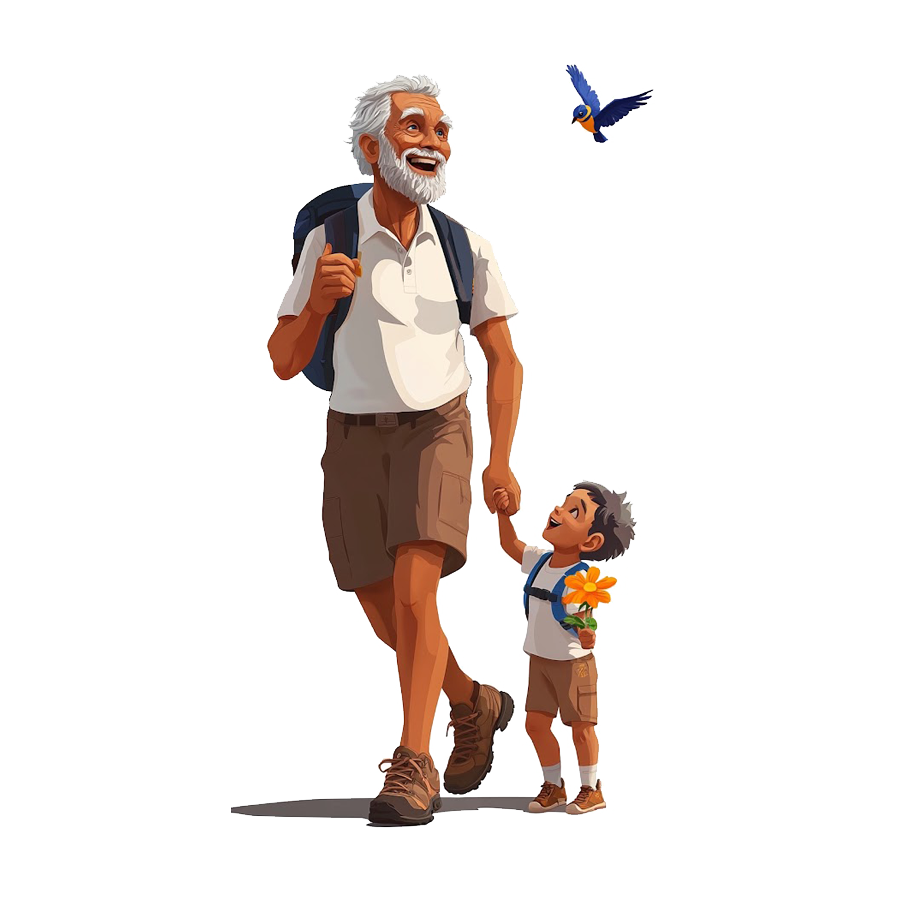
The free spirit
Proportion in senior population : 15%
Major practice: walking
Key facts:
- ZERO % did sport as adult
- Most if them started between 55 and 59
- 49% feel in medium to poor physical fitness
- 75% practice at least once a week
- 24% practice to fill their free time
This senior has very recently embraced sports primarily to improve his physical fitness and overall health. While staying in shape is his main focus, sports also help him fill his free time and connect with others. As a grandparent, he’s motivated to stay active so he can fully enjoy time with his grandchildren. Outdoor activities offer a perfect balance between fitness, nature, and social interaction. To support him, it's important to guide him toward sports that align with his health goals and encourage shared experiences.
I started going to the pool with my grandson Corinne, 63 yo, FR
The Relaeser
Proportion in senior population : 12%
Major practice: none
keys facts:
- do not practice sport
This senior, around 70 years old, used to engage in occasional sports in adulthood but stopped due to physical limitations, injuries, or time constraints. Now, he no longer practices any sport, and his physical fitness has declined. His main concerns are social isolation and maintaining independence. Although not involved in formal sports, he remains active through daily activities like gardening and walking, which help him stay mobile and connected to his environment.Promoting social activities like group walks or community gardening could help combat isolation and encourage light physical activity to support his health and independence.
We moved a year ago and there was this big garden to take care of. And we're no longer in the city, so it's harder to find something close to home. But I do miss the wellbeing, the health aspect, and I hope I'll be able to take up aquagym or fitness again when I'm done with the garden Martine, 67 yo, FR
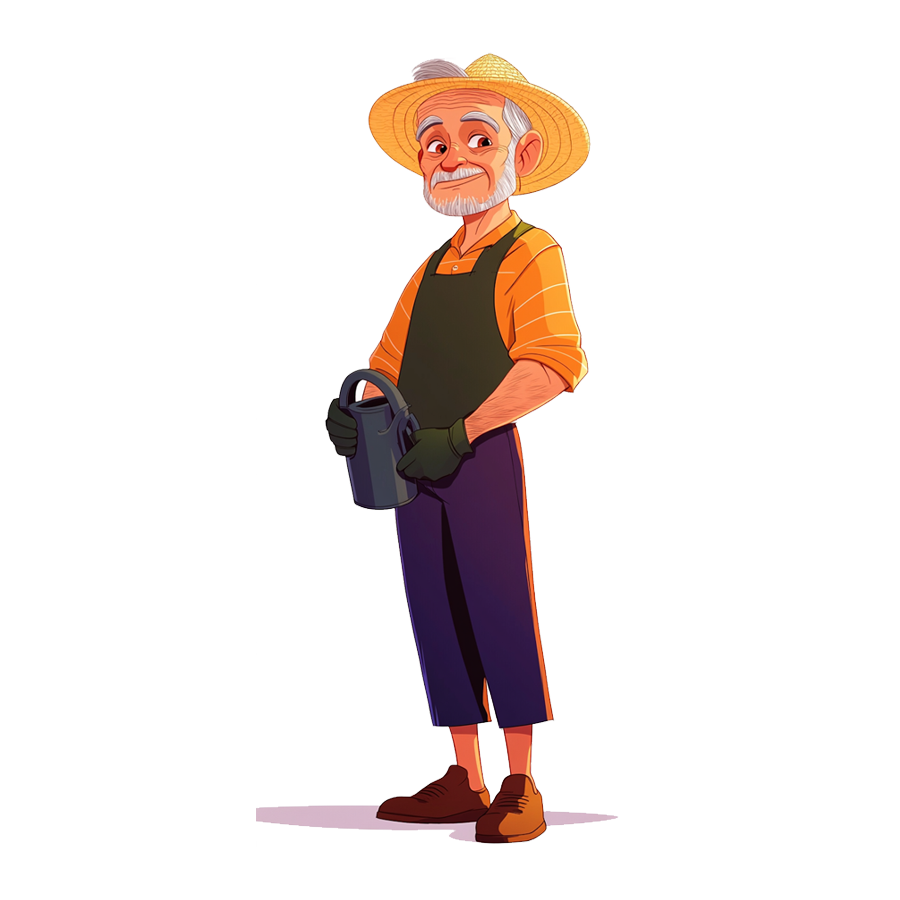
The rest of the seniors surveyed (to reach 100%) are disinterested or even resistant to sport. They have never practiced as adults and do not practice as seniors either.
The senior market presents both a significant opportunity and a complex challenge for businesses. Two key areas of focus include fostering social connection by enabling seniors to be active and engaged together, helping to combat social isolation, and co-creating a more dynamic, appealing image of seniors in sports to reflect their evolving lifestyles. Our team at EXPLORE (Innovation) is actively working on these initiatives, ensuring we stay at the forefront of this important and growing market.
We hope this exploration of seniors as a target has sparked your interest. If you are already involved in this topic or wish to take part in this initiative in the coming months, please feel free to reach out to Lucie via email : Lucie.bailleul @ decathlon.com.
We would be delighted to discuss and collaborate with you on this promising initiative.
Thank you for your attention


